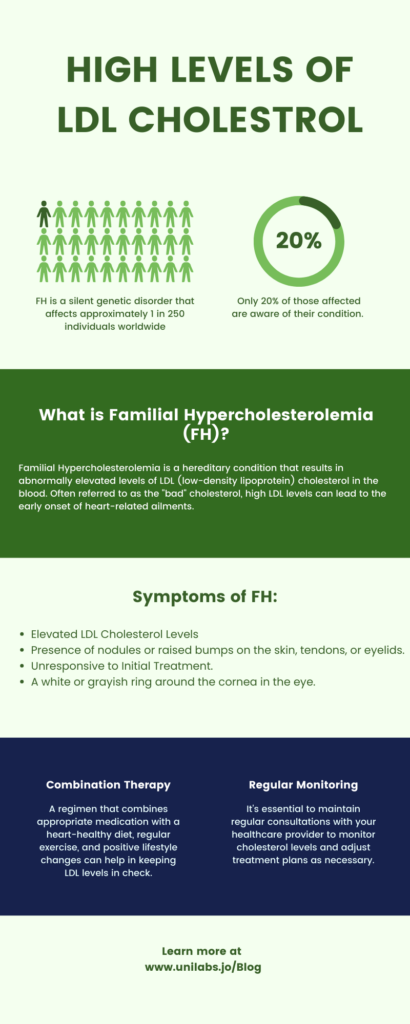Did you know that Familial Hypercholesterolemia (FH) is a silent genetic disorder that affects approximately 1 in 250 individuals worldwide? Alarmingly, only 20% of those affected are aware of their condition. Without timely intervention, FH can lead to severe cardiovascular complications, even in young individuals.

What is Familial Hypercholesterolemia (FH)?
Familial Hypercholesterolemia is a hereditary condition that results in abnormally elevated levels of LDL (low-density lipoprotein) cholesterol in the blood. Often referred to as the “bad” cholesterol, high LDL levels can lead to the early onset of heart-related ailments.
Recognizing the Symptoms of FH
Early detection is crucial in managing and treating FH. Here are some telltale signs to watch out for:
Elevated LDL Cholesterol Levels
In children, an LDL level exceeding 160 mg/dl is a red flag, while in adults, levels above 190 mg/dl warrant attention.
Physical Indicators
Presence of nodules or raised bumps on the skin, tendons, or eyelids.
Unresponsive to Initial Treatment
If standard cholesterol-lowering medications don’t bring down LDL levels, it could be indicative of FH.
Arcus Senilis
A white or grayish ring around the cornea in the eye.
Managing & Treating
While FH is a lifelong condition, it can be managed effectively with a holistic approach:
Combination Therapy
A regimen that combines appropriate medication with a heart-healthy diet, regular exercise, and positive lifestyle changes can help keep LDL levels in check.
Regular Monitoring
It’s essential to maintain regular consultations with your healthcare provider to monitor cholesterol levels and adjust treatment plans as necessary.
The Genetic Link
Familial Hypercholesterolemia, as the name suggests, has a genetic component. If one parent has FH, their offspring have a 50% likelihood of inheriting the condition. Therefore, early screening is recommended for individuals with a family history of FH.
Conclusion
Awareness and early detection are the cornerstones of managing Familial Hypercholesterolemia. If you or a loved one have a family history of high cholesterol or heart disease, consider getting screened for FH. With the right care and lifestyle choices, those with FH can lead healthy, fulfilling lives.